- Home
- Anna Carey
Once Page 2
Once Read online
Page 2
Page 2
“I know how you feel about him,” Quinn said, working at a knot in her black hair. Her caramel skin was flawless except for the small dry patch along her nose, red and peeling from the sun. “But things will get easier. You just need time. ”
I stepped onto a piece of driftwood, feeling satisfied when it snapped in half. We were the lucky ones—I knew that. Every time I peered down the table at meals, I thought about all we’d escaped from, how many girls were still stuck in the Schools and how many more were under the King’s control in the City of Sand. But knowing I was safe didn’t stop the nightmares: Caleb, alone in some room, blood in a dry, black pool around his legs. The images were so vivid they woke me, my heart knocking in my chest, the sheets damp with sweat. “I just want to know if he’s alive,” I managed.
“You might never know,” Quinn said, shrugging. “I left people behind. A friend of mine was caught while we were escaping. I used to think about her, obsess about what I could’ve done. Could we have gone out a different exit? What if I was the one trailing behind? Memories can ruin you if you let them. ”
That was my cue from Quinn: Enough. I’d already stopped talking about it with everyone else. Instead, I carried the thoughts like stones, holding them to feel their weight. No more thinking about the past, Maeve had told me one day. Everyone here has something to forget.
We walked along the edge of the beach, our feet swallowed by the sand. Gulls circled above. My bike was hidden on the other side of the hill. I pulled it from beneath a prickly shrub and started toward Quinn. She sat on hers, one foot resting on a pedal, tying back her curly hair with a piece of twine. She was wearing a loose turquoise T-shirt, I ♥ NY printed on it in block letters. It rode up in the front, exposing the top of the pink scars that crisscrossed her abdomen. She’d told me how she’d escaped, but she wouldn’t talk about the three years she’d spent inside the School, or the children she’d had there. I let my eyes linger on the swollen lines, thinking of Ruby and Pip.
We started up the road, pedaling in silence, the only sound the wind rustling the trees. Parts of the mountain had crumbled onto the pavement, leaving piles of rocks and branches that threatened to burst our tires. I concentrated on maneuvering through them.
Somewhere far off, a shout split the air.
I glanced over my shoulder, trying to figure out where it had come from. The beach was empty and the tide was coming in, the rocks and sand caught in the endless churning of the waves. Quinn moved off the road, finding cover behind the thick trees, and gestured for me to follow. We huddled together in the overgrowth, our knives out, until a figure finally appeared on the road.
Harriet slowly came into view, her face twisted and strange as she rode toward us on her bike. She was one of the gardeners who distributed fresh herbs and vegetables to Califia’s restaurants. She always smelled of mint. “Harriet—what’s wrong?” Quinn called, immediately lowering her knife.
Harriet hopped off her bike and walked toward us, her hair a wild mess from the wind. She leaned forward and rested her hands on her knees as she struggled to catch her breath. “There’s been movement in the city. Someone’s on the other side of the bridge. ”
Quinn turned to me. Since I’d arrived, guards had stood at the entrance to Califia, scanning the ruined city of San Francisco, looking for signs of the King’s troops. But no lights had been spotted. No Jeeps, no men.
Until now.
Quinn grabbed her bike from the underbrush and started up the road, pulling me along. “They’ve found you,” she said. “There’s not much time. ”
two
HARRIET PEDALED AROUND THE BEND. “THIS IS WHY WE HAVE A plan,” Quinn said, speeding alongside me so I could hear her. She glanced sideways, a few matted black curls blown in her eyes. “You’re going to be fine. ”
“I don’t feel fine,” I said, turning so she couldn’t see my face. My chest was tight, each breath short and painful. I’d been discovered. The King was close, and coming closer still.
Quinn leaned into a sharp turn. The edge of the pavement, a crumbling cliff fifty feet high, was only a few feet away. I held tight to the handlebars, now slippery with sweat, as we climbed the road to the bridge. It was rumored that the regime knew about the community of women nestled in the hills of Sausalito. They believed it to be a small group of female Strays, not a hidden depository for the Trail. The last time they had come through to check on the settlement was nearly five years ago, and the women had scattered into the hills, hiding out for the night. The soldiers had passed their houses and apartments, not noticing the shelters camouflaged by blankets of overgrown ivy.
The bridge came into view ahead. The towering red structure had been the site of a huge fire. It was piled with burned cars, debris from fallen beams and cables, and the skeletons of those who’d been trapped there while trying to escape the city. I held onto Quinn’s words: This is why we have a plan. If troops were spotted, Quinn and I would leave Sausalito, not stopping until we were deep in the labyrinth of Muir Woods, where an underground bunker had been built years ago. I would stay there, relying on stockpiled supplies, while the soldiers swept through Califia. The rest of the women would move west, up toward Stinson Beach, where they’d wait out the invasion in an abandoned motel. They’d be in enough danger if the settlement were discovered … much more if the soldiers found out they’d been hiding me from the King.
“There’s movement on the other side,” Isis called out from Califia’s entrance, hidden behind a patch of dense shrubs. She was leaning over the stone ledge, her black hair tied back with a bandanna, a pair of binoculars in her hand. We let the bikes fall and gathered around her. Maeve was perched over the trapdoor behind the ledge, doling out extra rifles and ammunition.
Maeve pressed a gun into Harriet’s hands, then handed another to Quinn. “Line up against the wall. ” All the women followed her lead. She was one of the youngest Founding Mothers, and the most vocal about what was expected of everyone in the settlement. Tall, with ropy muscles and braided blond hair, Maeve looked exactly the same as she did the day I’d first met her, standing outside Califia’s entrance. She was the one who’d turned Caleb away. I’d accepted the room in her house, the food and clothing she’d given me, the post she’d found for me at the bookstore, knowing it was her way of saying what couldn’t be spoken: I’m sorry, but I had to.
I took a rifle and joined the rest of the women, feeling the cold weight of the gun in my hands. I remembered what Caleb had said, back when I was staying at his camp: Killing a New American soldier is an offense punishable by death. I thought of the two soldiers I’d shot in self-defense. We’d left their bodies on the road beside their government Jeep. I’d held the third soldier at gunpoint, forcing him to drive us toward Califia, his hands trembling on the wheel. Caleb had slumped against the backseat, his leg bleeding where he’d been stabbed. The soldier had been younger than me—I let him go when we were right outside San Francisco. “Maeve, do we need the guns? We shouldn’t use—”
“If they discover the escapees they’ll drag them all back to their Schools, where the girls will spend the next years pregnant and on so many drugs they won’t even remember their names. That’s not an option. ” She walked along the row of women, pressing each of their shoulders forward to adjust their aim.

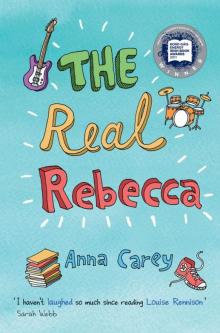 The Real Rebecca
The Real Rebecca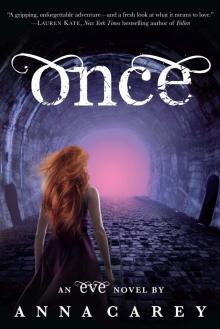 Once
Once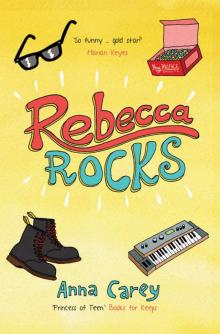 Rebecca Rocks
Rebecca Rocks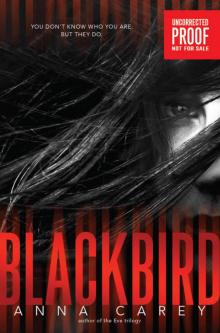 Blackbird
Blackbird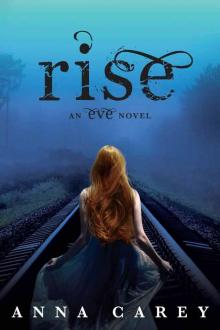 Rise
Rise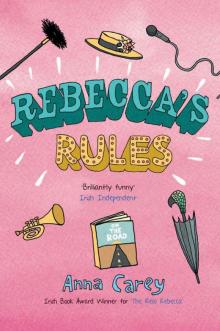 Rebecca's Rules
Rebecca's Rules Deadfall
Deadfall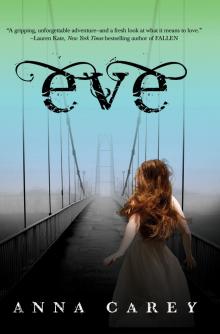 Eve
Eve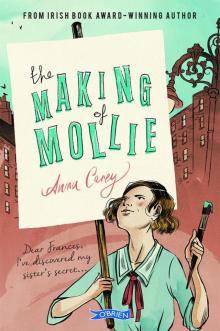 The Making of Mollie
The Making of Mollie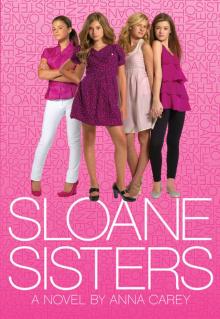 Sloane Sisters
Sloane Sisters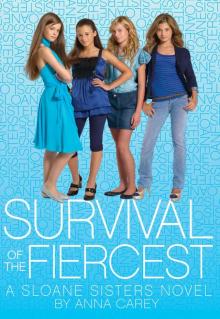 Survival of the Fiercest
Survival of the Fiercest This Is Not the Jess Show
This Is Not the Jess Show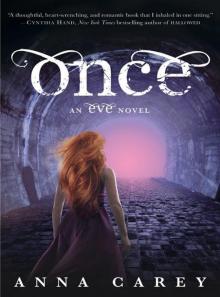 Once: An Eve Novel
Once: An Eve Novel